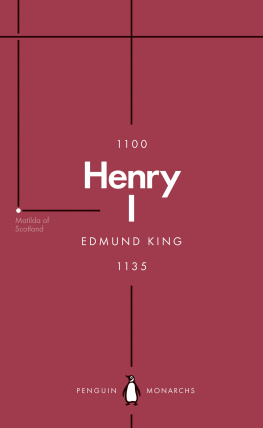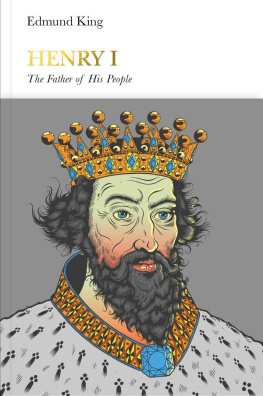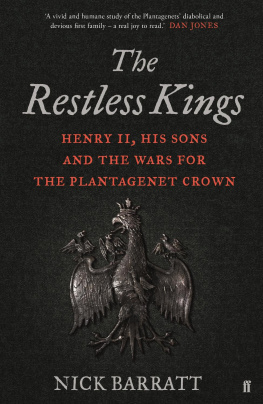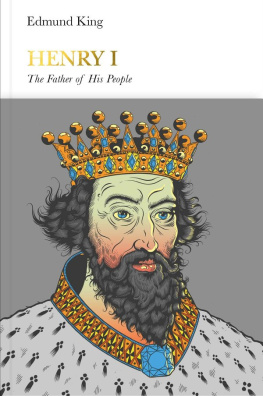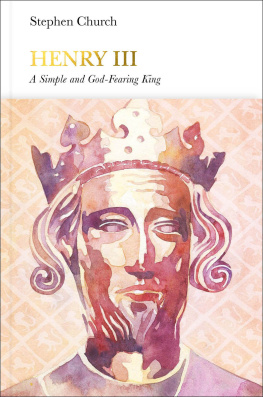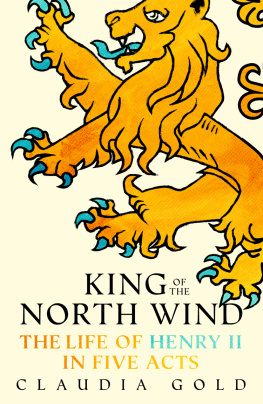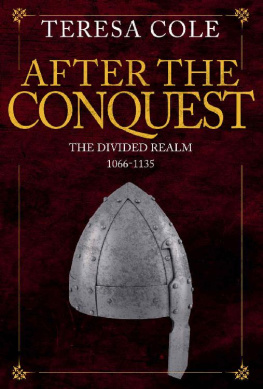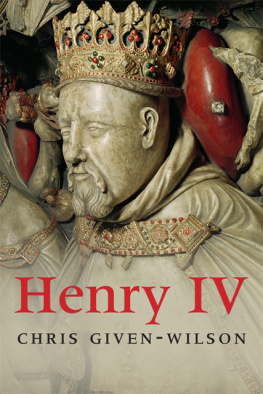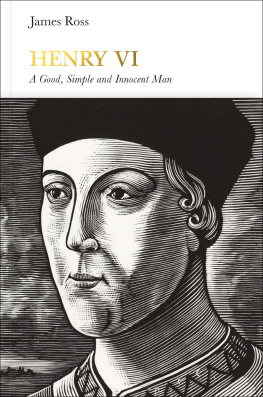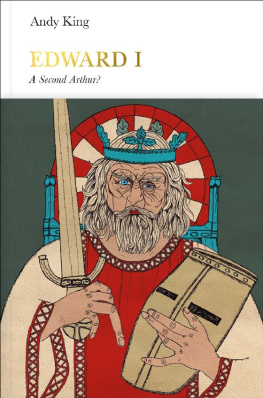About the Author
Edmund King is Emeritus Professor of Medieval History at Sheffield University. His books include a life of King Stephen, an edition of the Historia Novella of William of Malmesbury and Medieval England from Hastings to Bosworth.
Penguin Monarchs
THE HOUSES OF WESSEX AND DENMARK
| Athelstan | Tom Holland |
| Aethelred the Unready | Richard Abels |
| Cnut | Ryan Lavelle |
| Edward the Confessor |
THE HOUSES OF NORMANDY, BLOIS AND ANJOU
| William I | Marc Morris |
| William II | John Gillingham |
| Henry I | Edmund King |
| Stephen | Carl Watkins |
| Henry II | Richard Barber |
| Richard I | Thomas Asbridge |
| John | Nicholas Vincent |
THE HOUSE OF PLANTAGENET
| Henry III | Stephen Church |
| Edward I | Andy King |
| Edward II | Christopher Given-Wilson |
| Edward III | Jonathan Sumption |
| Richard II | Laura Ashe |
THE HOUSES OF LANCASTER AND YORK
| Henry IV | Catherine Nall |
| Henry V | Anne Curry |
| Henry VI | James Ross |
| Edward IV | A. J. Pollard |
| Edward V | Thomas Penn |
| Richard III | Rosemary Horrox |
THE HOUSE OF TUDOR
| Henry VII | Sean Cunningham |
| Henry VIII | John Guy |
| Edward VI | Stephen Alford |
| Mary I | John Edwards |
| Elizabeth I | Helen Castor |
THE HOUSE OF STUART
| James I | Thomas Cogswell |
| Charles I | Mark Kishlansky |
| [ Cromwell | David Horspool] |
| Charles II | Clare Jackson |
| James II | David Womersley |
| William III & Mary II | Jonathan Keates |
| Anne | Richard Hewlings |
THE HOUSE OF HANOVER
| George I | Tim Blanning |
| George II | Norman Davies |
| George III | Amanda Foreman |
| George IV | Stella Tillyard |
| William IV | Roger Knight |
| Victoria | Jane Ridley |
THE HOUSES OF SAXE-COBURG & GOTHA AND WINDSOR
| Edward VII | Richard Davenport-Hines |
| George V | David Cannadine |
| Edward VIII | Piers Brendon |
| George VI | Philip Ziegler |
| Elizabeth II | Douglas Hurd |
Now in paperback
Edmund King
HENRY I
The Father of His People
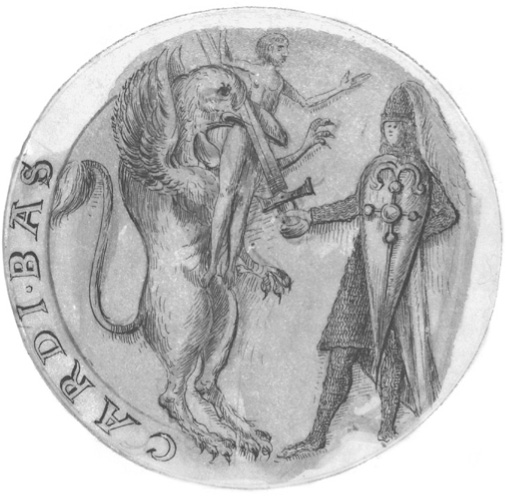

PENGUIN BOOKS
UK | USA | Canada | Ireland | Australia
India | New Zealand | South Africa
Penguin Books is part of the Penguin Random House group of companies whose addresses can be found at global.penguinrandomhouse.com
First published by Allen Lane 2018
Published in Penguin Books 2022
Copyright Edmund King, 2018
The moral right of the author has been asserted
ISBN: 978-0-141-97899-4
This ebook is copyright material and must not be copied, reproduced, transferred, distributed, leased, licensed or publicly performed or used in any way except as specifically permitted in writing by the publishers, as allowed under the terms and conditions under which it was purchased or as strictly permitted by applicable copyright law. Any unauthorized distribution or use of this text may be a direct infringement of the authors and publishers rights and those responsible may be liable in law accordingly.
For Jenny on our Golden Wedding 30 December 2017
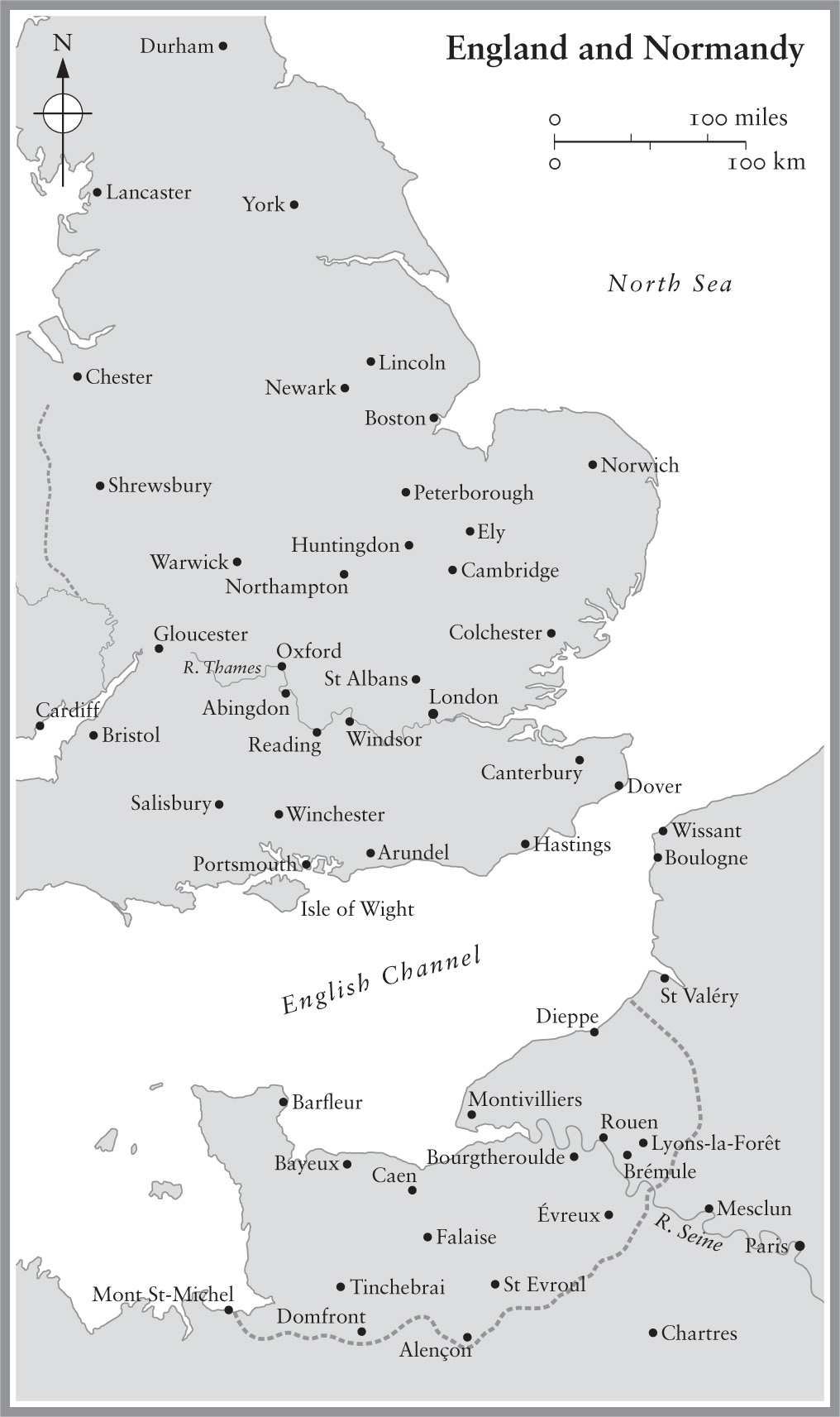
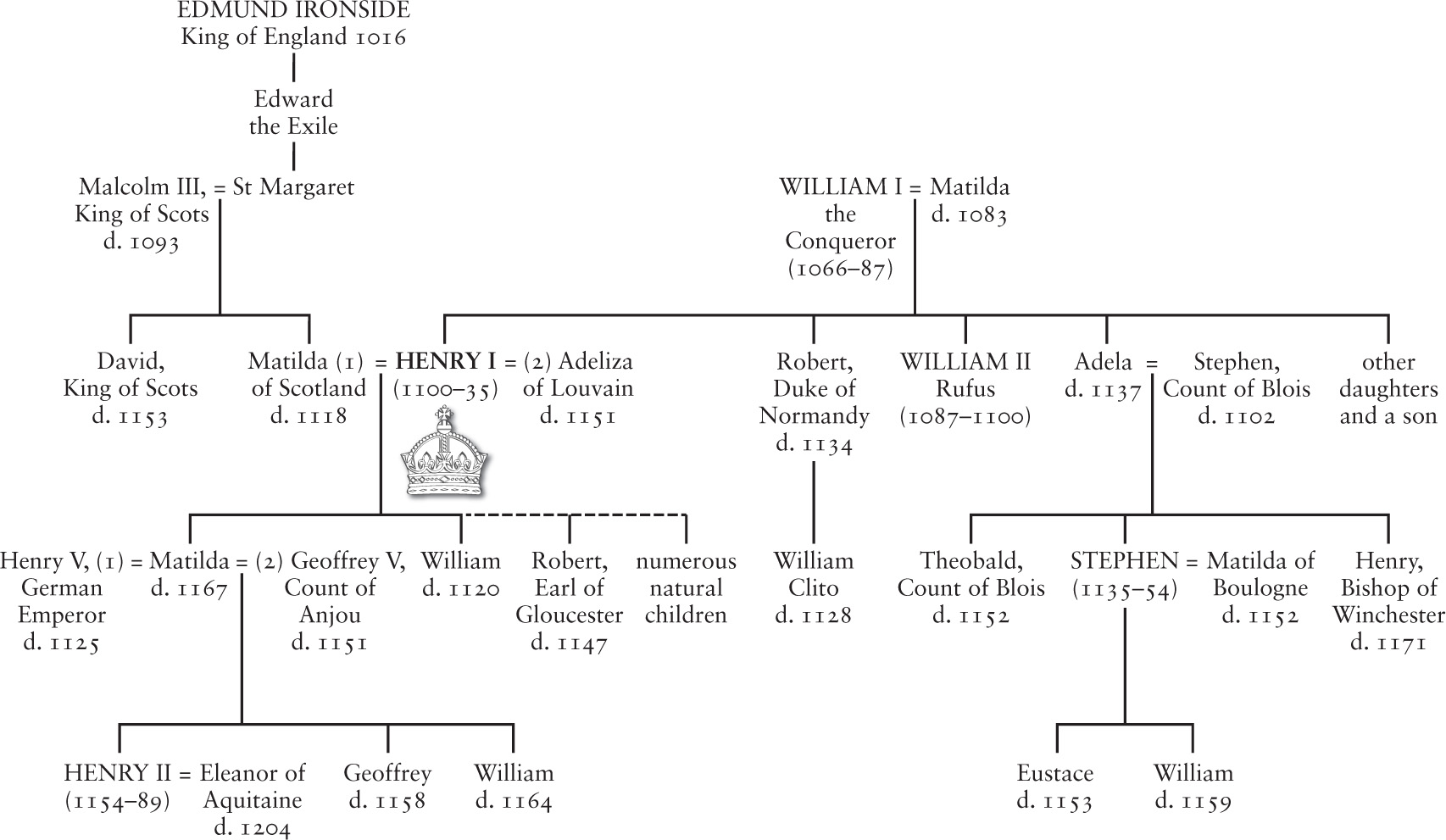
Preface
On 4 April 1962 the future Sir Richard Southern gave the Raleigh Lecture on History at the British Academy, on The Place of Henry I in English History. A few weeks later, on 6 June, I presented the results of my studies in medieval English history to the Cambridge examiners. What significance do you attach to the administrative reforms of Henry Is reign? was one of the questions on which I was invited to comment. Whether I did so I cannot now recall, but in any event, so I was later informed, the examiners were not greatly impressed. A dog-eared off-print of the lecture, which I purchased the following year for six shillings, shows me starting to catch up.
Southerns essay is a tour de force. He plays down administrative developments: Henry I was not a creator of institutions, rather he created men. Here he picked up on the comments of the chronicler Orderic Vitalis on how Henry had raised men from the dust and made them formidable even to the greatest magnates of the kingdom. These are Henrys new men, and Southern placed them at the centre of his study. He also listed the many novelties of the reign, which included the first royal financial accounts, our first charter of liberties and the first foreign treaty in
Henrys reign, Southern noted, is the first and one of the greatest ages in English historical scholarship. The three great historians of the age are William, a monk of Malmesbury in Wiltshire, Henry, the Archdeacon of Huntingdon in the diocese of Lincoln, and Orderic Vitalis, a monk of St Evroul in Normandy. Each of these writers had a father of Norman birth and a mother who was English. And so it might seem logical to say of all three what Southern said of Malmesbury, that he was only half English. But this is not how they identified themselves. They are proud Englishmen: proud of their craft, proud of their country, proud of their king. Malmesbury, the most ambitious of the three, sets out his objectives in his Preface. He starts with Bede, the most learned and least proud of men. Bede had written the history of the English up to his own day; no one since him had set out the full story in Latin; moved by the love of my country and influential friends, Malmesbury would now do so. His title: Gesta Regum Anglorum (The History of the English Kings). To write a big book you need a big subject. That subject was the history of the English. And you need to be confident of an audience. Malmesburys influential friends were the family and the court of Henry I.
It is not just the scale that is new but the register. Both
Granted that this is a new style of historical writing, it is remarkable to find it done with such assurance. Here is Malmesbury again, sending the Empress Matilda, Henrys daughter, a presentation copy of his

